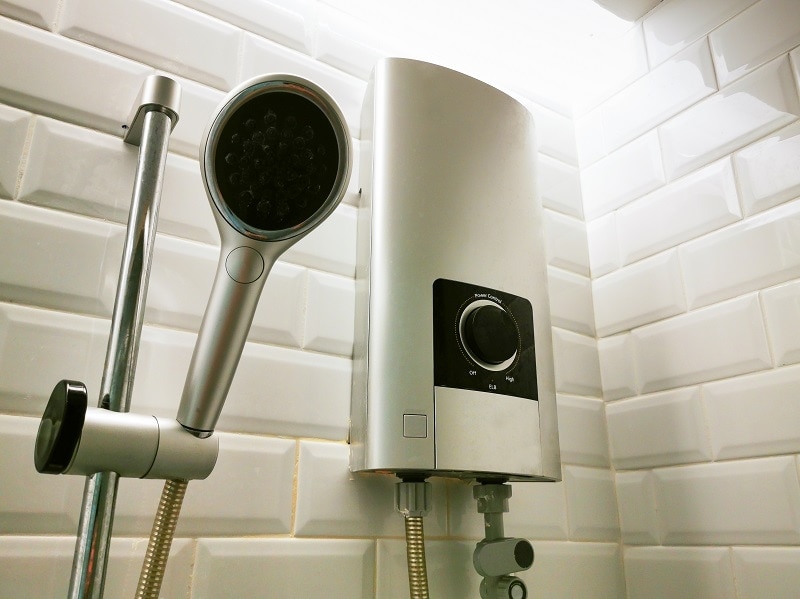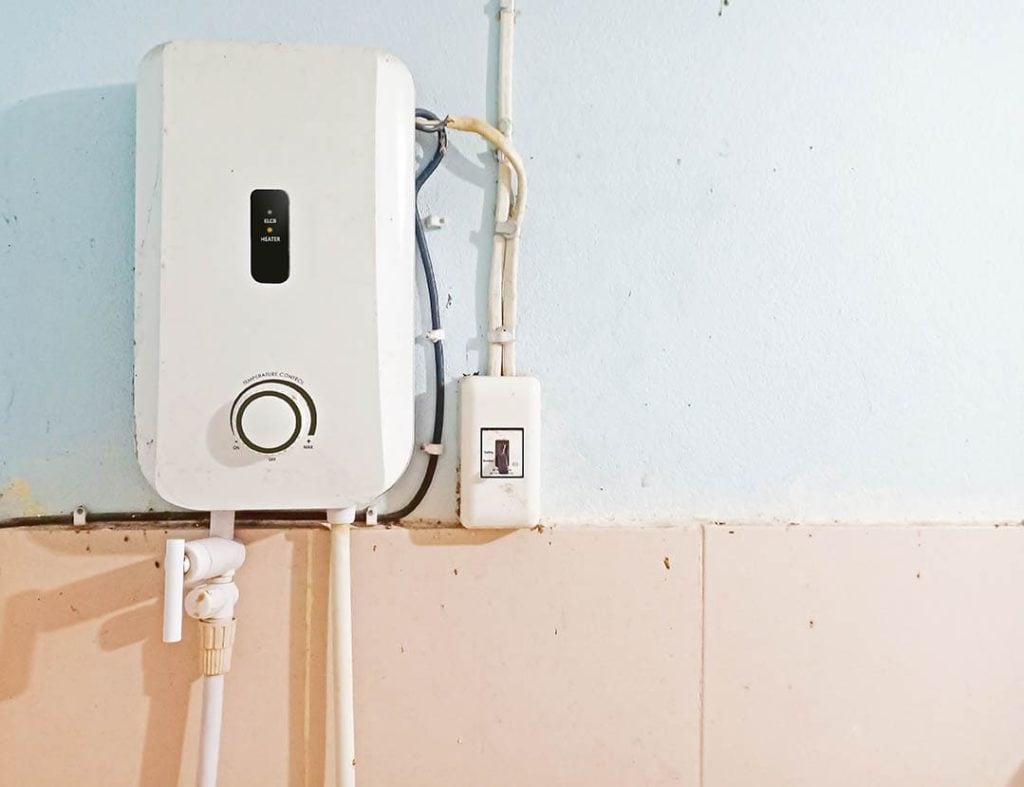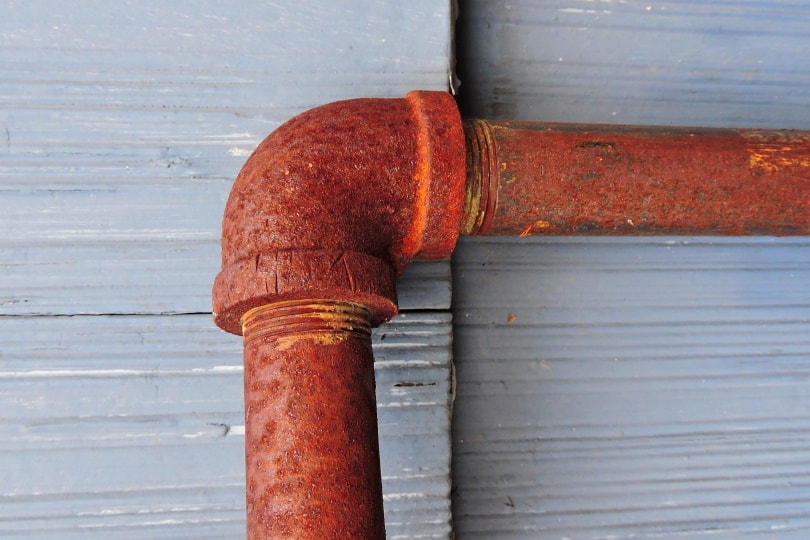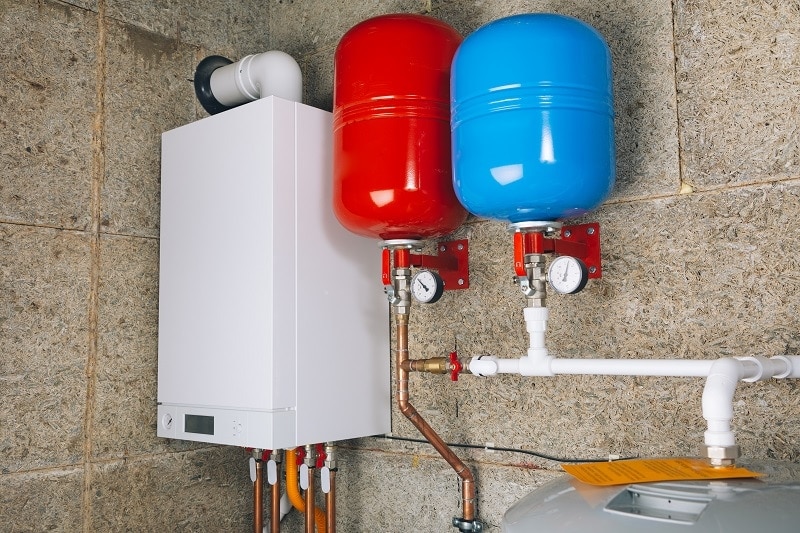When To Replace a Water Heater: 6 Signs, Facts & FAQs
-
Pete Ortiz
- Last updated:

A bad water heater can waver from being frustrating to becoming a time bomb, depending on how bad the situation is. In best-case scenarios, you start getting some cooler water from your system, but in a worst-case scenario, a water heater can burst and flood your home. Knowing the signs of a bad water heater is critical to know when a system might need to be replaced before it is too late. Knowing what to look for to spot a bad water heater can give you time to save money and make a plan before the whole system goes bad.
Here are six signs that your water heater is going bad and might need to be replaced.
The 6 Signs to Look for When Considering Replacing a Water Heater
1. No Heating
The most obvious sign that your water heater needs to be replaced is when it stops heating your water. A water heater that doesn’t heat is just an old water tank. If you turn on your water and let it run for a while and you get no hot water at all there is something seriously wrong with your water heater. If a water heater stops heating your water at all it is the number one sign that it should be replaced.

2. Poor Heating
Sometimes your water heater will still heat the water, just not very well. Signs of poor heating include water that gets too hot, water that quickly gets hot and then goes back to cold, or water that comes out warm but never gets truly hot. All of these are signs that the heating element of your tank is failing, and if it is not addressed, it will stop heating altogether. If your water heater is providing inconsistent heat, it is likely time to have it replaced.
3. Strange Noises
When a water heater is going bad, it will usually start making a lot of noise before it goes out. These noises have been described as a knocking sound and can get very loud. A healthy water heater should make little to no sound at all. If you start hearing any clanging, rumbling, whining, or clanking coming from your tank, it is a sign that something is wrong.
The most common source of noise in a water heater is a build-up of sediment at the bottom, which starts to clog up the tank’s regular functions while wearing down the pipes and valves that make it run. Removing sediment from a water heater can be very difficult, and if it gets advanced enough, a replacement is usually the best option.
4. Leaks
Leaks are a big problem for water heaters. A small leak can exist for a long time without anyone noticing. As soon as water begins leaking from the tank, it will start to affect other areas of the water heater. Water can erode pipes, valves, and the base of the tank over time which greatly decreases the lifespan of the water heater.
Leaks can also become a catastrophic mess if the heater bursts completely. This is not common, but it has happened in the past. When a small leak damages the integrity of a tank long enough, the whole thing could give way, and that means 60 gallons of water flooding into your home or garage. If you notice any leaks coming from your water heater, you should get it looked at right away to prevent further damage or failure.
5. Exterior Rust
Even if you do not see any visible signs of a leak, water will always leave a mark. If you see rust starting to form on the outside of your water heater or on the nearby pipes and footings, that is a sign that there is water leaking from somewhere. Even a small drip is enough to slowly rust your tank away. Rust will slowly degrade and corrode the efficiency of your hot water heater as the rust builds up on important components. Any signs of rust on the exterior of your water heater could be an indication of a deeper problem that needs to be addressed before it grows into a larger problem.

6. Rusty Water
Another sign of a bad water heater is rusty water. If you turn on the hot water and notice that it looks cloudy or brown it could be a sign that your water heater is going bad. This one is tricky because it can also indicate that one of your pipes is going bad as well. If you see rusty water in conjunction with any of the other problems on this list, it is likely a sign that your water heater is failing. In any case, rust-colored water coming out of your pipes is never a good thing and should warrant some attention when it happens.
How Long Do Water Heaters Last?
Water heaters typically last eight to twelve years. Most maintenance and repair shops suggest replacing your water heater every ten years to be safe. The lifespan of your water heater can vary based on a few factors. First, the type of water heater plays a role. Second, the location of your water heater. Water heaters that are located outside where they are exposed to more extreme temperature shifts or the elements won’t last as long as a water heater that is indoors. Lastly, the amount of use can also dictate how long a water heater will last. Water heaters that are used less frequently will have less wear than water heaters that get used a lot.
Different Types of Water Heaters
There are three types of typical residential water heaters. The types of water heaters are conventional, solar, and tankless. Conventional water heaters are the most common. They store 40 to 75 gallons of water at a time in a tank and release the water when you need it. Solar water heaters are similar to conventional water heaters, except they use a solar system to heat the water rather than electricity. Tankless water heaters have no tank at all and simply heat the water as it runs through the system, which looks like a small box.
Conventional water heaters last around ten years. Solar water heaters can last up to 15 years. Tankless water heaters can last up to 20 years. All three types need regular maintenance to keep them running at their best.

Can You Repair a Water Heater?
Yes, you can have a water heater repaired, but it is not always worth it. Water heaters that are eight or more years old and suffering from serious problems are often best replaced rather than repaired. However, in cases where the issue is small or if the water heater is not that old, a repair could be a good option. Check your local listings to find a water heater service technician; if you can’t find any under that name, call and ask your local heating and cooling shops to see if they do water heaters.
Final Thoughts
Most people don’t think about their water heaters until there is a problem, but they are important appliances for any modern home. If you notice any of these signs with your water heater, it is probably a good time to have it looked at. Waiting too long can cost you valuable time and money or even lead to terrible water damage.
Featured Image Credit: neotemlpars, Shutterstock
Contents




